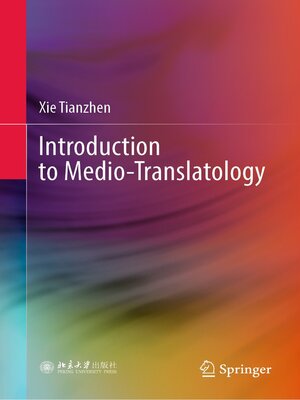
Sign up to save your library
With an OverDrive account, you can save your favorite libraries for at-a-glance information about availability. Find out more about OverDrive accounts.
Find this title in Libby, the library reading app by OverDrive.



Search for a digital library with this title
Title found at these libraries:
| Library Name | Distance |
|---|---|
| Loading... |
This book offers a comprehensive introduction to medio-translatology, including its historical and literary setting, its core concept, and its practice and theory. Medio-translatology, inspired by scholarship in comparative literature and the "cultural turn" in Western translation studies, has tackled many issues which previously went unnoticed or were ignored in traditional translation studies in China; it falls within the scope of literary studies and cultural studies, extending beyond the confines of language and treating literary translations and translating as historical facts.
Emerging from comparative literature, medio-translatology looks at literary translation from a new and broader perspective, and explains, with illustrative and compelling examples, that literary translation is "an act of creative treason." The originality of this approach is also evident in its distinguishing between the history of translated literature and the history of literary translation, as well as in its addressing the nature and status of translated literature.
The Chinese edition of this book, being the first of its kind and well received in China, has been hailed as a milestone in exploring translation studies in the context of comparative literature in Chinese academia, and it introduces to students and researchers alike a wide range of new thoughts and ideas.
Emerging from comparative literature, medio-translatology looks at literary translation from a new and broader perspective, and explains, with illustrative and compelling examples, that literary translation is "an act of creative treason." The originality of this approach is also evident in its distinguishing between the history of translated literature and the history of literary translation, as well as in its addressing the nature and status of translated literature.
The Chinese edition of this book, being the first of its kind and well received in China, has been hailed as a milestone in exploring translation studies in the context of comparative literature in Chinese academia, and it introduces to students and researchers alike a wide range of new thoughts and ideas.







